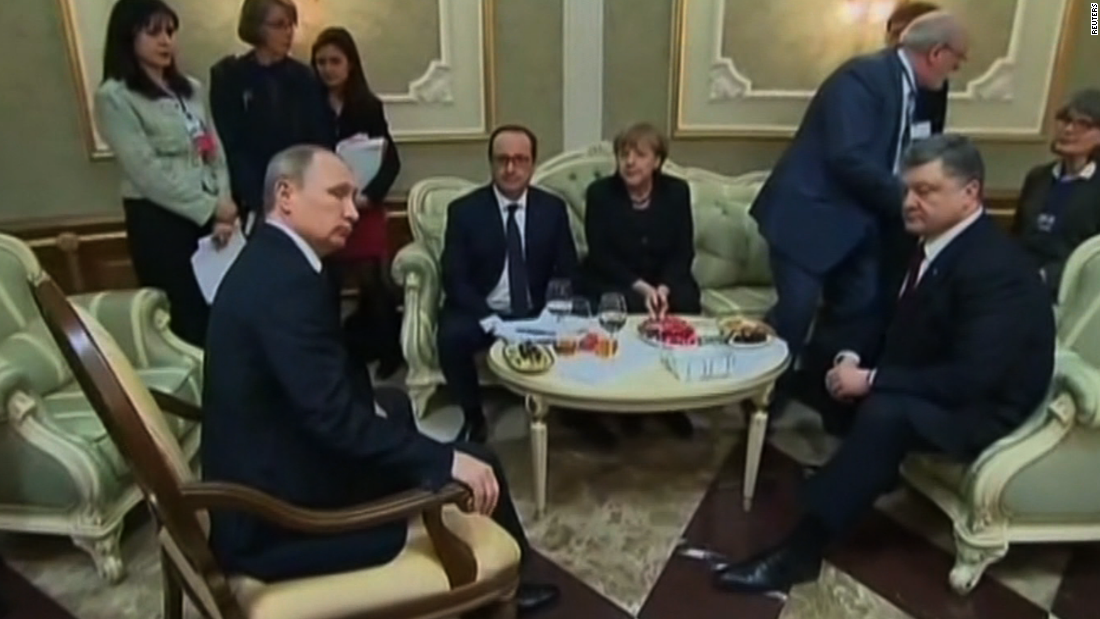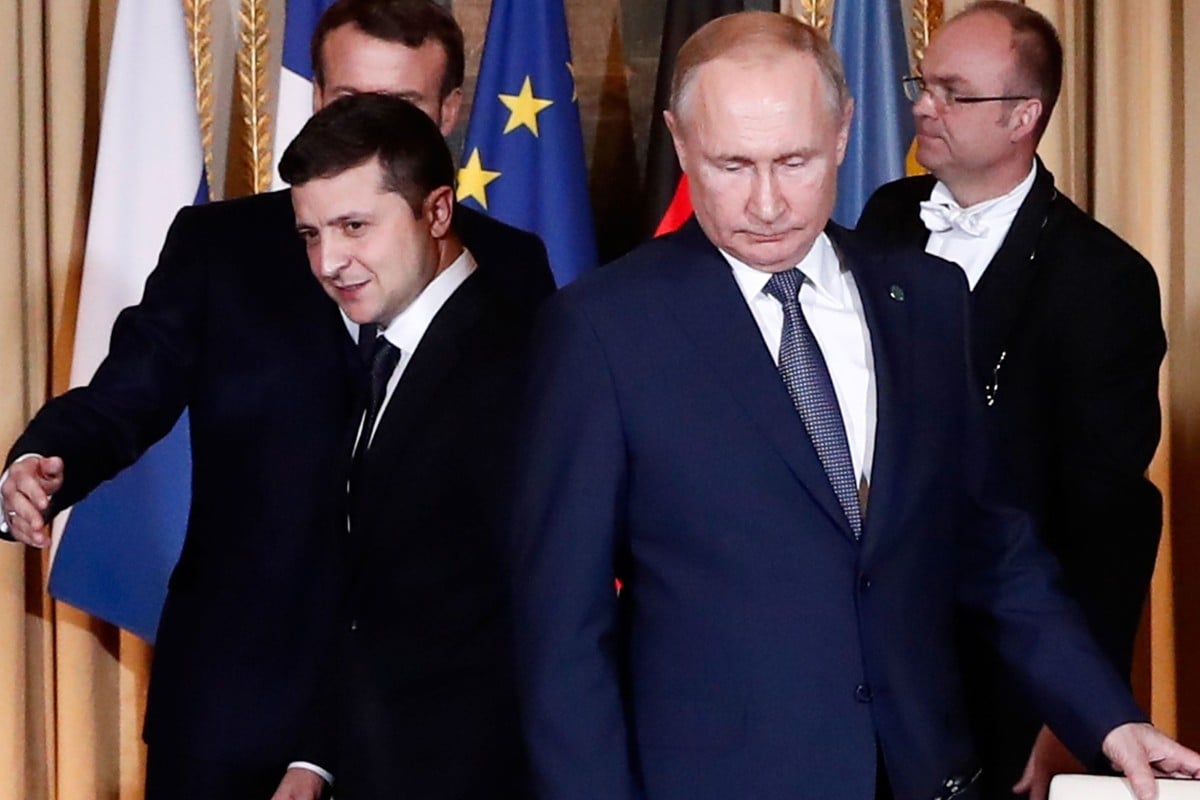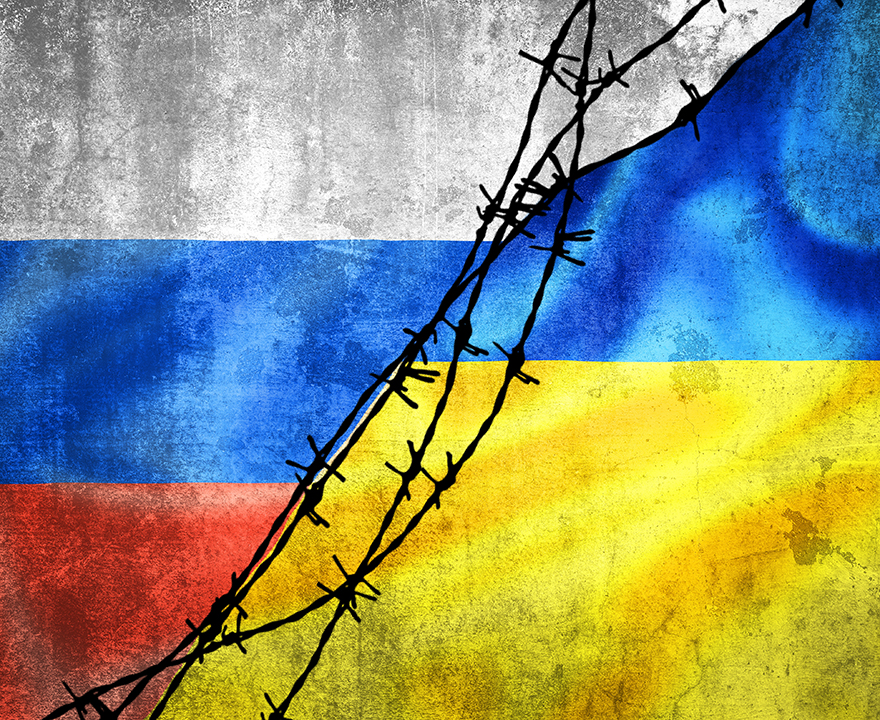
Insider accounts and leaked documents show Ukraine and Russia were close to a peace deal in April 2022, until “alarmed” US intervened.
New Evidence US Blocked Ukraine-Russia Deal
And a New Ukrainian Excuse for Walking Away
Aaron Mate / Substack
(June 27, 2924) — Since the collapse of peace talks between Ukraine and Russia in April-May 2022, the Biden administration and establishment US media have maintained a near-total vow of silence.
Even as Russian President Vladmir Putin has directly accused the US and UK of sabotaging the negotiations in Istanbul, President Biden and his top principals have never offered a rebuttal, and no major US outlet has bothered to seek one. The lone exception was an anonymous senior administration official, who told the Wall Street Journal’s Yaroslav Trofimov that Russian complaints were “Utter bulls—.” The official added: “I know for a fact the United States didn’t pull the plug on that. We were watching it carefully.”
A new article in the New York Times ends the paper of record’s self-imposed quiet. The Times has published a lengthy account of the Istanbul talks based on insider sources, including three Ukrainian negotiators, as well as leaked copies of draft treaties disclosed publicly for the first time. The Times’ reporting underscores that Ukrainian and Russian negotiators made significant progress.
It also offers new evidence that the Biden administration — notwithstanding a lone anonymous denial — stood in the way. Yet rather than acknowledge the West’s role in blocking a peace deal, the Times offers up a dubious new excuse from the Ukrainian side for walking away.
The Istanbul agreement, as summarized in a Ukrainian-authored document known as the Istanbul Communiqué, would have seen Ukraine accept permanent neutrality, rule out NATO membership, not host foreign military bases, and limit the size of its armed forces. In exchange, Russia would withdraw its military and pledge to respect Ukrainian sovereignty and security. The status of Crimea and Ukraine’s eastern Donbas region would have been left to future negotiations.

Yet rather than acknowledge that a peace deal was within reach, the Times downplays the progress that was made in Istanbul and adopts the NATO-Ukrainian narrative that Russia sought Kyiv’s capitulation.
As has become the norm in Western media since Russia’s invasion, the Times minimizes Russian grievances about the influence of neo-Nazis and a crackdown on Russian culture inside Ukraine. According to the Times, Russia’s proposed text “targeted Ukraine’s national identity, including a ban on naming places after Ukrainian independence fighters.”
Yet turning to the actual source material, we see that Russia asked Ukraine to ban “the glorification and propaganda in any form of Nazism and neo-Nazism, the Nazi movement and organizations associated therewith,” including the naming of Ukrainian streets and memorials after Nazi collaborators. Unless the Times is now inadvertently adopting the Russian view that Ukraine is a Nazi state, Moscow’s demands can hardly be seen as an affront to “Ukraine’s national identity.”

Russia expressed concern about neo-Nazi parties in Ukraine.
With NATO states having sided with the numerically small but politically influential ultra-nationalist movement inside Ukraine — including the Azov battalion, which the Biden administration is now arming after lifting a longstanding ban — a more accurate characterization is that Russia’s proposed curbs on Nazism were an affront to a key Western ally.
The Times confirms that the US did not like what it was hearing from Istanbul, and made it known. According to the Times, “American officials were alarmed at the terms” of the proposed deal and relayed their concerns to the Ukrainians. A former senior US official recalled that in meetings with Ukrainian counterparts, the US characterized the deal as an act of surrender: “We quietly said, ‘You understand this is unilateral disarmament, right?’”
In fact, much like seeking the de-glorification of Nazis, Russia’s bid for permanent Ukrainian neutrality was not an outlandish demand. It was a request to revert to Ukraine’s July 1990 Declaration of State Sovereignty, which affirmed Ukraine’s “intention of becoming a permanently neutral state that does not participate in military blocs.” This also happened to be the position of elected Ukrainian president Viktor Yanukovych before he was ousted in the US-backed Maidan coup of February 2014, as well as the plurality if not majority opinion inside Ukraine over many years.
As F. Stephen Larrabee, a former Soviet specialist on the US National Security Council wrote in 2011, “the main obstacle” to Ukraine’s ascension to NATO “is not Russian opposition… but low public support for membership in Ukraine itself.”
In seeking to override both Ukraine’s founding constitution and popular opinion, the Biden administration was therefore not “alarmed” that Ukraine’s neutrality meant “unilateral disarmament.” Instead, it wanted to preserve the US-led militarization of Ukraine as a de-facto NATO proxy on Russia’s border — a project that has led to Ukraine’s unilateral decimation.
The former US official also claimed that White House officials debated Putin’s “intentions”, and questioned whether he was really interested in making peace. “We didn’t know if Putin was serious. We couldn’t tell, on either side of the fence, whether these people who were talking were empowered.” Yet the same US official believed Putin was “salivating” at the prospect of peace. The Times also acknowledges that the Russian president appeared to be “micromanaging” the talks from Moscow — which would seemingly bolster the case that he was indeed serious.

Negotiators Confirm Putin “Reduced His Demands”
Two Ukrainian negotiators also told the Times that they saw the Russians as serious, with one noting that Putin “reduced his demands” over time. For example, after initially insisting that Ukraine recognize Crimea “as an integral part of the Russian Federation,” Moscow dropped that request.
Accordingly, as Ukrainian negotiator Oleksandr Chalyi later admitted, the two sides “managed to find a very real compromise” and “were very close in the middle of April 2022… to finalize the war with some peace settlement.” Putin, he said, “tried to do everything possible to conclude [an] agreement with Ukraine.”
The two sides indeed made so much progress that the Istanbul Communiqué’s final item foresees the possibility of convening a meeting “between the presidents of Ukraine and Russia with the aim of signing an agreement and/or making political decisions regarding the remaining unresolved issues.”
Two weeks later, a 16-page draft treaty (including six annexes), dated April 15th, made its way to Putin’s desk. Yet according to the Times’ newly introduced narrative, it was at this stage that a last-minute Russian maneuver sabotaged a deal.
Under the proposed agreement, Ukraine’s security would be assured by guarantor states, including the US and Russia. On this issue, outlined in Article 2, there was no dispute. But according to the Times, Moscow tried to add a clause in Article 5 concerning the guarantors’ response in the event of an armed attack on Ukraine.
Moscow proposed that if Ukraine were to be attacked, the guarantors would need to unanimously agree on any military response. In the Times’ telling, this would mean that “Moscow could invade Ukraine again and then veto any military intervention on Ukraine’s behalf — a seemingly absurd condition that Kyiv quickly identified as a deal-breaker.” According to an unnamed Ukrainian official, Russia’s proposed clause meant that “we had no interest in continuing the talks.”
While it would indeed be unfair for Russia to insist on the right to veto a defense against any future Russian invasion of Ukraine, there is no reason to assume that this “seemingly absurd condition” was indeed its demand. (My emphasis)
Article 2 of the draft treaty binds any guarantor state or party to the treaty — including Russia — “to refrain from the threat or use of force against Ukraine, its sovereignty and independence, or in any other manner inconsistent with the purposes of the United Nations.”

Accordingly, were Russia to flagrantly violate the treaty by invading Ukraine, it would have no grounds to invoke a different section of the treaty to prevent other states from responding to its attack. If one party violates a treaty — particularly its most fundamental provision — it cannot expect others to continue adhering to it. Therefore, if Russia were to attack Ukraine, it would not have right to stop someone else from responding.
The Times-Ukrainian claim that this Russian proposal was a “deal-breaker” is not only dubious on its own, but contradicted by the available record. Despite the anonymous official’s assertion that Ukraine “had no interest in continuing the talks” because of Russia’s proposed amendment, the talks in fact continued beyond April 15th into the following month.
Moreover, more than two years after the Ukrainians walked away from the Istanbul talks, they have now introduced this excuse about a Russian poison-pill for the first time. Previously, Ukrainian officials have claimed that they abandoned the talks over concerns that Moscow could not be trusted, particularly in light of the alleged Russian atrocities that surfaced in Bucha just as the Istanbul talks progressed.
Yet in that case as well, the Russia-Ukraine talks continued even after the alleged Russian war crimes in Bucha were made public. As Zelensky argued forcefully at the time, only diplomacy could prevent the occurrence of future atrocities. Asked during an April 4th visit to Bucha if the peace talks would continue, the Ukrainian leader replied: “Yes, because Ukraine must have peace.”
Zelensky reiterated that message the following day: “Every tragedy like this, every Bucha will affect negotiations. But we need to find opportunities for these steps.” Reviewing the diplomatic record from that period, Samuel Charap and Sergey Radchenko note that the two sides’ work on the draft treaty “continued and even intensified in the days and weeks after” the Bucha allegations surfaced, suggesting that they “were a secondary factor in Kyiv’s decision-making.”
The main factor in Ukraine’s decision-making, therefore, was almost certainty the message that Zelensky’s camp revealed in May 2022: the previous month, just as the Istanbul talks were advancing, UK Prime Minister Boris Johnson paid a visit to inform Zelensky that the West did not support a peace deal with Russia, and that the Ukrainians should “keep fighting” instead.
The Times, conveniently, does not mention Johnson’s visit, nor the West’s open refusalto provide the security guarantees that Kyiv sought to underpin an agreement with Russia. Just as NATO proxy warriors have not been prepared to accept a neutral Ukraine in exchange for peace, US establishment media is not yet prepared to acknowledge their decisive role in sabotaging an early opportunity to end the war.
Aaron Mate’s article is a reader-supported publication.
Comments
David S — The NYT admits the US was involved and opposing a deal but also says no deal was quite being reached anyway. Numerous other sources have claimed a deal was, in fact, imminent.
Don S — It’s significant that — bit by bit — the NY Times and the Washington Post are exposing US provocations and wrongdoing.
In November of 2023, the Washington Post exposed that “Since 2015, the CIA has spent tens of millions of dollars to transform Ukraine’s Soviet-formed services into potent allies against Moscow, officials said…. The extent of the CIA’s involvement with Ukraine’s security services has not previously been disclosed.”aa
Likewise, a New York Times article The Spy War: How the C.I.A. Secretly Helps Ukraine Fight Putin, dated February 25, 2024, revealed that the CIA had been coordinating with Ukrainian intelligence since at least 2014 and that the Ukrainians had been launching assassinations and other kinetic actions in Crimea and Russia. As Mark Episkopos writes in Responsible Statecraft, CIA in Ukraine: Why is this not seen as provocation?: “An explosive new NYT report shows how Washington needlessly fed into Russia’s worst fears and precipitated the invasion, justified or not.”
Right before the Russian invasion, in January of 2022, Yahoo News reported: CIA-trained Ukrainian paramilitaries may take central role if Russia invades. After the invasion, in March of 2022, Yahoo News reported: Secret CIA training program in Ukraine helped Kyiv prepare for Russian invasion..
The New Yorker’s Is the F.B.I. Truly Biased Against Trump? contains a telling paragraph on the US government’s efforts to suppress information about exactly what happened in Ukraine:
According to [FBI agent] Buma’s statement, shortly after Russia invaded Ukraine, on February 24, 2022, he was told to terminate relations with one of his most valuable sources in that field, Dynamo. The order came from both his supervisors and the FBI’s Foreign Influence Task Force, and, per Buma, superiors told him that the shutdown of Dynamo was based on “highly classified information from the National Security Agency” which he could not access. They also said that it was part of a broader effort, around the time of the invasion, to close off many “sources related to Russia/Ukraine matters.”
Posted in accordance with Title 17, Section 107, US Code, for noncommercial, educational purposes.
